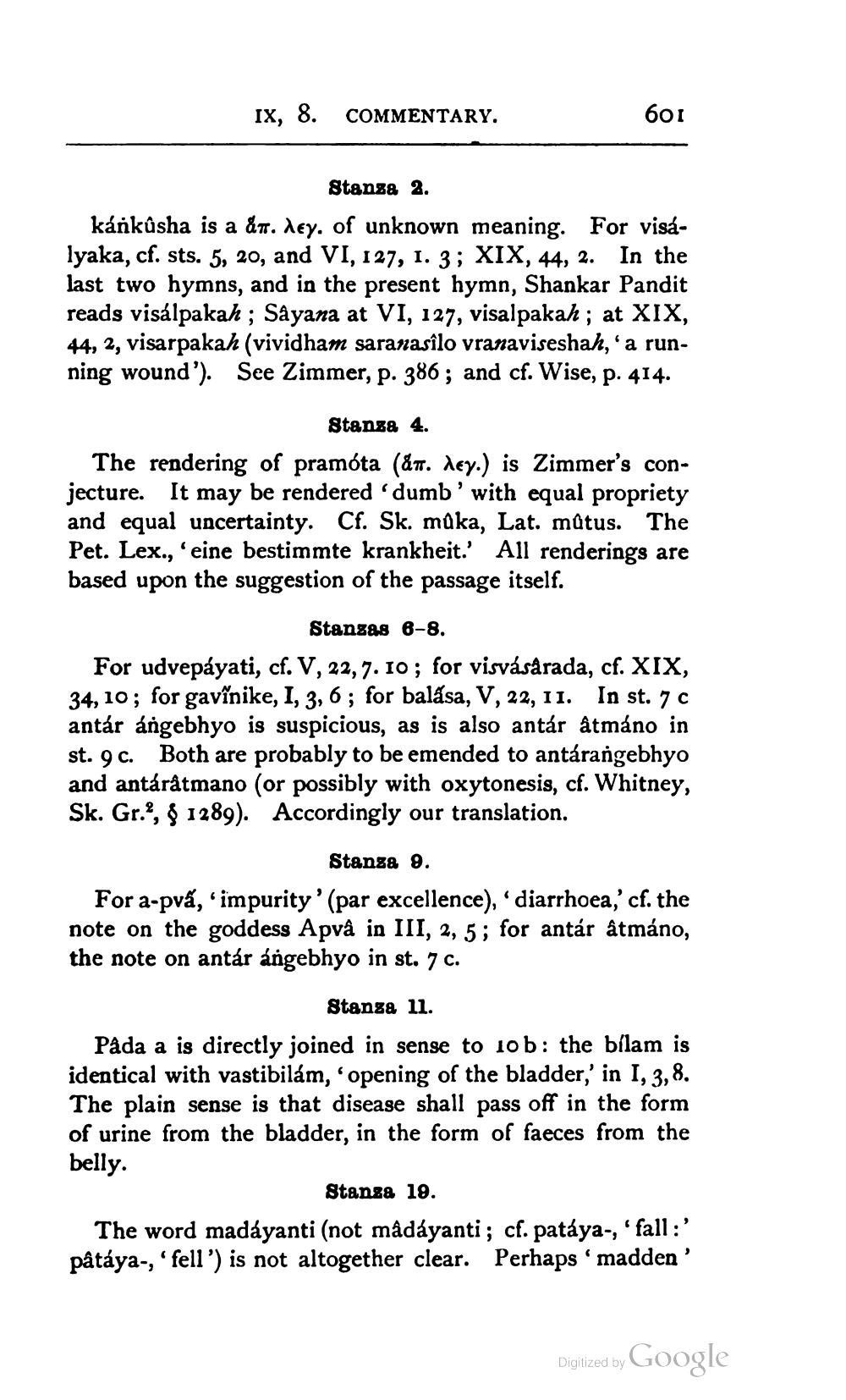________________
IX, 8. COMMENTARY.
601
Stansa 2. kánkůsha is a dr. dey, of unknown meaning. For visályaka, cf. sts. 5, 20, and VI, 127, 1. 3; XIX, 44, 2. In the last two hymns, and in the present hymn, Shankar Pandit reads visálpakah ; Sayana at VI, 127, visalpakah ; at XIX, 44, 2, visarpakah (vividham saranasîlo vranaviseshah,' a running wound'). See Zimmer, p. 386; and cf. Wise, p. 414.
Stanza 4. The rendering of pramóta (ån. dey.) is Zimmer's conjecture. It may be rendered 'dumb' with equal propriety and equal uncertainty. Cf. Sk. muka, Lat. matus. The Pet. Lex., 'eine bestimmte krankheit. All renderings are based upon the suggestion of the passage itself.
Stansas 6-8. For udvepáyati, cf. V, 22,7.10; for visvásárada, cf. XIX, 34, 10; for gavînike, 1, 3, 6; for balása, V, 22, 11. In st. 70 antár ángebhyo is suspicious, as is also antár átmáno in st. 9 c. Both are probably to be emended to antárangebhyo and antáråtmano (or possibly with oxytonesis, cf. Whitney, Sk. Gr.?, § 1289). Accordingly our translation.
Stansa 8. For a-pvá, “impurity' (par excellence), diarrhoea,' cf. the note on the goddess Apvà in III, 2, 5; for antár âtmáno, the note on antár ángebhyo in st. 7 c.
Stanza 11. Pada a is directly joined in sense to 10b: the bílam is identical with vastibilám, opening of the bladder,' in 1, 3, 8. The plain sense is that disease shall pass off in the form of urine from the bladder, in the form of faeces from the belly.
Stanga 19. The word madáyanti (not mâdáyanti; cf. pataya-, 'fall:' pâtáya-, 'fell') is not altogether clear. Perhaps 'madden'
Digiized by Google




